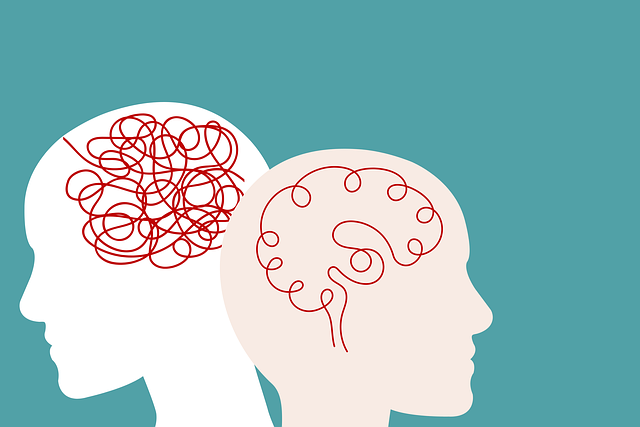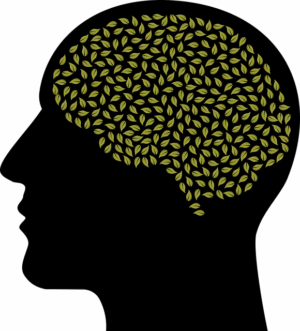Gestalt therapy is a holistic approach to mental health psychotherapy that emphasizes the interconnectedness of mind, body, and environment. By focusing on present-moment awareness and sensory experiences, it encourages individuals to observe and understand their emotions, thoughts, and behaviors as they arise. Techniques like role-playing and mindfulness practices help clients gain self-awareness, improve communication, and develop healthier coping strategies. The ultimate goals are to promote self-acceptance, emotional regulation, and deeper connections with oneself and others, ultimately enhancing overall well-being.
Delve into the transformative world of Gestalt therapy, a holistic approach to mental health that emphasizes the interconnectedness of perception, cognition, and behavior. This article explores how Gestalt psychotherapy sessions facilitate self-discovery and growth by enhancing self-awareness and present moment awareness. We examine the unique techniques employed, the dynamic role of client-therapist interaction, and the profound benefits—alongside considerations and limitations—of this powerful therapeutic modality for mental health improvement.
Understanding Gestalt Therapy: A Holistic Approach to Mental Health

Gestalt therapy is a form of psychotherapy that takes a holistic approach to mental health, focusing on the interconnectedness of mind, body, and environment. Unlike traditional talk therapy which often centers on identifying and treating specific symptoms, Gestalt therapy encourages individuals to explore their experiences in the present moment, paying attention to emotions, thoughts, and behaviors as they unfold. This approach emphasizes self-awareness and personal responsibility, helping clients to understand how past experiences and current situations influence their mental well-being.
By creating a safe and supportive environment, Gestalt therapy sessions facilitate profound insights and transformations. Through various techniques such as role-playing, experiential exercises, and mindfulness practices, individuals are guided to confront and resolve internal conflicts, improve communication skills, and develop healthier coping mechanisms. Ultimately, the goal is to foster greater self-acceptance, emotional regulation, and a deeper sense of connection with oneself and others.
The Role of Perception and Organization in Shaping Our Experience

Our perception and organization of sensory information play a pivotal role in shaping our experiences, according to Gestalt therapy, a form of humanistic psychotherapy. This therapeutic approach emphasizes that we don’t simply react to stimuli but actively construct our reality based on how we interpret and organize these inputs. Every moment, our minds create a meaningful whole from the chaos of senses, forming patterns and structures that influence our emotions and behaviors.
In mental health psychotherapy, understanding this process is crucial. By exploring how clients perceive and organize their experiences, Gestalt therapy helps individuals become more aware of their automatic reactions and defense mechanisms. This awareness allows for healthier ways of interacting with the world, fostering greater flexibility in thinking and behaving, and ultimately enhancing overall well-being.
Techniques Used in Gestalt Psychotherapy Sessions

In Gestalt psychotherapy sessions, therapists employ a range of techniques designed to help clients gain deeper insights into their thoughts, feelings, and behaviors. One key method is focusing on the present moment, encouraging clients to become aware of their sensory experiences, emotions, and reactions. This mindfulness practice allows for a more immediate understanding of psychological processes. Therapists also use structured exercises, such as role-playing or experience-sharing, to explore and challenge maladaptive patterns.
Additionally, Gestalt therapy emphasizes the importance of environment and context in shaping mental health. Sessions often involve exploring interpersonal relationships and how clients perceive and respond to their surroundings. Through this process, individuals learn to recognize and modify self-limiting beliefs and behaviors, fostering a more balanced and fulfilling life. By combining these techniques, Gestalt psychotherapy aims to help clients achieve personal growth, improved decision-making, and enhanced overall well-being.
Enhancing Self-Awareness and Present Moment Awareness

Gestalt therapy sessions focus on enhancing self-awareness and present moment awareness, key aspects of mental health psychotherapy. Through interactive exercises and discussions, clients gain deeper insights into their thoughts, emotions, and behaviors, fostering a more holistic understanding of themselves. This increased self-awareness allows individuals to recognize patterns that may be hindering their well-being and personal growth.
In the present moment awareness component, Gestalt therapy encourages individuals to live fully in the here and now, letting go of past regrets or future anxieties. By cultivating mindfulness, clients can better process their experiences, make more intentional decisions, and develop a stronger sense of emotional regulation. This approach not only enhances overall mental health but also empowers individuals to lead more fulfilling lives.
Encouraging Client-Therapist Interaction and Feedback

In Gestalt therapy sessions, encouraging client-therapist interaction and feedback is a cornerstone of the approach. This dynamic exchange facilitates deeper understanding and self-awareness among clients, allowing them to explore their thoughts, emotions, and behaviors in real-time. Through open dialogue, therapists help individuals identify patterns and gain new perspectives on their mental health issues.
Effective communication fosters an environment where clients feel heard, validated, and empowered. Therapists actively listen, provide constructive feedback, and guide clients through exercises that promote introspection and reflection. This collaborative process enables individuals to make meaningful changes in their lives, ultimately enhancing their overall mental health and well-being.
Benefits, Limitations, and Considerations for Gestalt Therapy

Gestalt therapy offers unique benefits in the realm of mental health psychotherapy. One key advantage is its focus on the whole person—mind, body, and emotions—allowing for a holistic understanding of individual experiences. Through interactive sessions, clients gain awareness of their thoughts, feelings, and behaviors as they unfold in real-time, fostering self-awareness and personal growth. This therapy encourages individuals to explore their relationships with others, past experiences, and present-day stimuli, helping them resolve conflicts and make meaningful changes.
However, Gestalt therapy has its limitations. It may not be suitable for everyone, especially those who prefer more structured and traditional talk therapies. The interactive nature of the sessions could feel uncomfortable or challenging for some individuals. Additionally, while it excels in helping clients understand their current situations, it might require extra effort to generalize these insights into everyday life. Practitioners should consider the client’s willingness to engage actively in this process and provide adequate support to ensure a safe and effective therapeutic environment.
